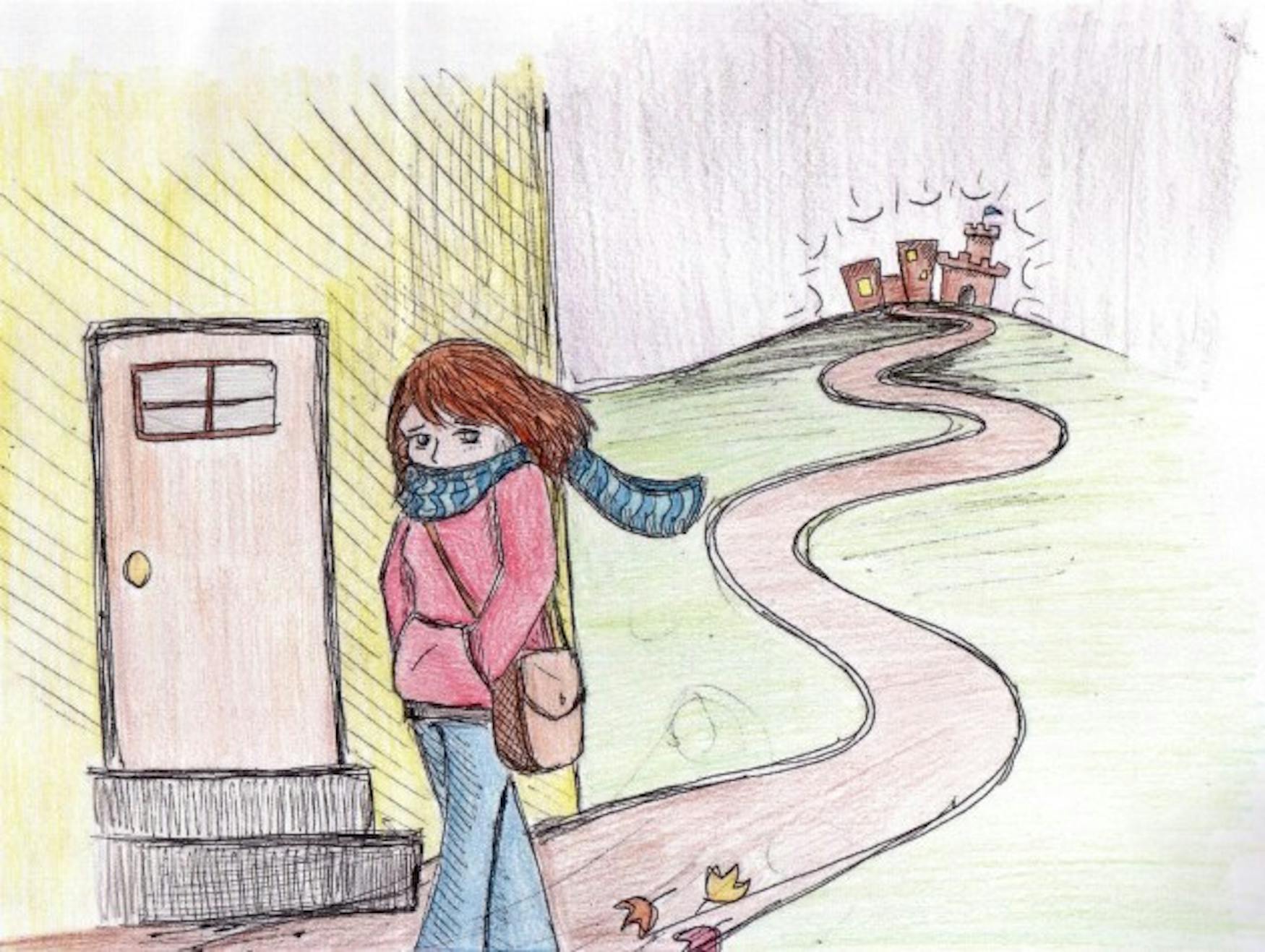Off-campus students disconnected from college
Anyone who lives off-campus can agree: the lifestyle is not perfect. When it snows, we have to shovel ourselves out before we trudge to class. When we study late in the library, it's a lonely walk home. When we're sick, the Health Center is far away (ever try walking up that hill with chest congestion?). Cooking and the subsequent dishwashing is hard. Paying utilities bills is never fun (who still uses oil heating and how do you fill the tank?). Obviously, our lifestyle is different than that of those who live on-campus, but different does not need to mean more difficult.
I would like to point out a few major detractors from my current student-life experience that are due to my living location, most of which have to do with health and safety. With some adjustment on the part of Brandeis, living in Waltham could be easier, and possibly safer.
I decided to move off-campus when I elected to study abroad last fall. By choosing to study abroad in the fall, I was not guaranteed on-campus housing. Without moving off-campus, I could have come home from Africa without a place to stay. Moreover, I knew that even if I did receive housing, there would be a greater chance that I would be living in the Charles River Apartments, which are not truly "on-campus." I feared that not only would I still be 20 minutes from campus, but that I would be even farther away from amenities such as grocery stores. I felt that my only option was to move off-campus. The University could not guarantee me housing, so I signed a lease.
I am a commuter student with a Waltham residence. However, when the Waltham Police came to my home when the music was too loud in September, I was told that they would be informing the Brandeis Campus Police that they had visited. Although I live off campus, I am still subject to all of the rules stated in the Rights and Responsibilities Handbook.
According to recent emails from the Office of Student Life, I am also responsible for deterring on-campus students from littering as they walk to and from my home on the weekends. In many ways, I still feel like an on-campus student even though I do not live on Brandeis property.
However, when it comes to campus amenities, I am disconnected from the University. For example, I do not have access to Brandeis Emergency Medical Corps. In the police log last week, there was an entry about an off-campus student who was forced to walk his girlfriend, who was experiencing kidney pain, to the parking lot of the 567 South Street Apartments.
This was so that she could receive care from BEMCo, which does not answer off-campus calls. This is a service that all students fund as paying members of the Student Activity Fund.
Yet, access to that service was denied because the callers were not atop the South Street hill.
In addition to not receiving care from BEMCo, off-campus students receive very little outreach from the University. On-campus students receive periodic check-ups from their Community Advisers and their Community Development Coordinator.
While I am not advocating for an off-campus CDC, having an occasional off-campus-focused email that checks in on our mental health, physical health and safety would be appreciated. Moreover, it would be a responsible action on the part of the Office of Student Life.
In terms of safety, I have already mentioned that the walk to and from campus can be lonely, but it can also feel dangerous. There have been multiple nights that I have called for BranVan services only to hear that the next available off-campus shuttle will be in another hour or two. No student should have to walk home alone late at night from campus. It is simply unsafe.
There are no blue emergency lights that guide us home as cars driving along South Street speed down the street and whip around corners. And if there were to be an emergency, who could I call? My lines of communication with the University are blurred because it is unclear which University services I do and do not have access to as a commuter student.
At the current levels of enrollment, there is not enough room on campus for every student. However, it's likely that students will live off-campus whether there are expanded housing options or not for a variety of reasons: it provides experience with working with landlords and lease signing, and it provides more flexibility in terms of finding competitive pricing for housing. Regardless, the University has a responsibility to provide equal benefits for all students, in the same way that it holds all students to the same expectations in the Student Rights and Responsibilities Handbook.
Nearly all of the shortcomings of off-campus life result from structural problems on the part of the University.
A new Student Committee, which Dean Kaplan '15 is spearheading, can only do so much before the University has to realize that they must make significant structural changes to address these problems. For the sake of the next residents of 5 Sharon Street, Waltham, I hope that they will.
*



Please note All comments are eligible for publication in The Justice.